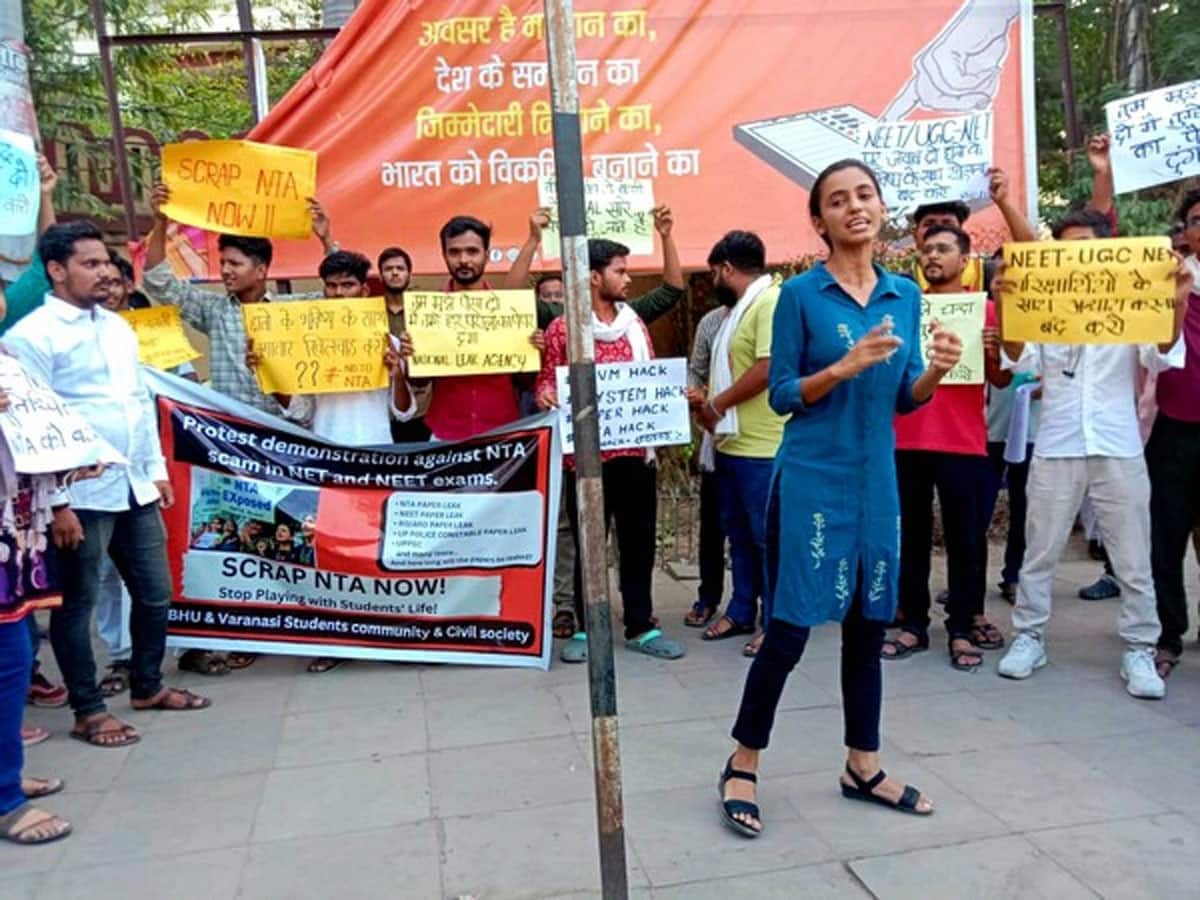
Amid the ongoing controversy over alleged irregularities in the NEET and UGC-NET examinations, a major step has been taken to prevent incidents of paper leaks in future. The government on Friday notified the Public Examination (Prevention of Unfair Means) Act, 2024. The aim of which is to prevent malpractices in competitive and common entrance examinations conducted across the country.
Provisions of the Act
The Act was passed by Parliament in February this year and has come into force on June 21, 2024. Punishment has been provided for those involved in exam rigging, be it an individual or a group. Conducting mock exams is also covered under this Act. Those found guilty of leaking the paper or tampering with answer sheets under this law will be jailed for a minimum of 3 years. This can be extended to five years with a fine of up to ₹10 lakh. The service provider appointed to conduct the exam (the group or organisation involved in exam rigging) is liable to a fine of up to Rs 1 crore and imprisonment of up to 10 years if found guilty. If the service provider is involved in illegal activities, the expenses of the exam will be recovered from him. The Public Examinations Act was passed in the Lok Sabha on February 6 and in the Rajya Sabha on February 9. President Draupadi Murmu approved the bill on February 12 and signed it into law.
important point
- After the NEET controversy, anti-paper leak law was implemented in the country
- The central government issued a notification at midnight
- Cheating and malpractices will be prevented in recruitment examinations
- 3 to 5 years imprisonment and Rs 10 lakh fine for paper leak
- Imprisonment up to 10 years, fine up to Rs 1 crore if the appointed service provider is found guilty
The law also provides for confiscation of property
And the fine shall not be less than one crore rupees. The law also provides for confiscation and seizure of the property of the institute found involved in organized paper leak crime and the examination expenses will also be recovered from the institute. However, this act protects the candidates appearing in the examination from punitive action. If any candidate is caught using unfair means during the examination, action will be taken against him as per the provisions of the exam conducting body.
The Public Examinations (Prevention of Unfair Means) Act, 2024 – the anti-paper leak law for examinations for central recruitment and admission to central educational institutions, came into force on Friday.
A gazette notification issued by the Ministry of Personnel, Public… pic.twitter.com/TMJhsDtcJ5
The law defines 'unfair use' as leaking of paper or answer key, assisting candidates during the examination through unauthorised communication, tampering with computer networks or other equipment, seating proxy candidates (solvers or people appearing in the examination in place of a candidate), conducting fake examinations, issuing fake documents regarding exam lists or ranks and tampering with recognised documents.
All exams will be covered under the law
Offences falling under the Public Examinations (Prevention of Unfair Means) Act, 2024 are non-bailable. An officer of the rank of DSP (Deputy Superintendent of Police), or ACP (Assistant Commissioner of Police) can investigate any offence under the Act. In addition, the central government has the power to hand over any investigation to a central agency. UPSC, SSC, Railway Banking Recruitment Exams and all computer-based exams conducted by NTA come under this Act.
 look news india
look news india
